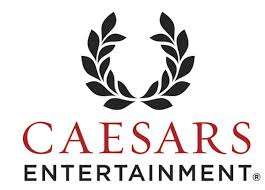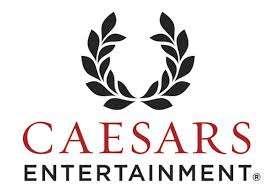Caesars Entertainment Reshuffling Continues as CEOC Bankruptcy Looms
(Editor’s note: This revised version offers a further clarification of Caesars Entertainment and its three main component entities, CEOC, CERP, and Caesars Growth Subsidiaries. Though any planned bankruptcy appears intended for the CEOC unit, parent company Caesars Entertainment still faces legal opposition regarding its ongoing partitioning of CEOC away from the other major components of the Caesars corporate family. Ambiguities regarding the distinction between Caesars Entertainment and component entity CEOC have also been revised from this story’s original version.)
Caesars Entertainment continues its rocky corporate reshuffling as it prepares for a likely bankruptcy filing either late this year or in early 2015. The parent company of roughly 50 land-based casinos and other corporate entities such as the World Series of Poker continues to struggle under a $20 billion debt load that the company has shown no sign of being able to overcome, leaving a restructuring and probable dumping of some of its investor debt as a last chance at resuming long-term profitability.
 Last week’s release of third-quarter financials and several related filings with the Securities and Exchange Commission (SEC) highlighted several days of related Caesars Entertainment corporate news. The parent company’s efforts to deal with its massive long-term debt have long been expected to lead nowhere else but a bankruptcy filing; Caesars was taken private (then later returned to the public sector) in a leveraged buyout back in 2006 that occurred just prior to the bursting of the global land-investnent bubble — and a related bubble in corporate takeovers.
Last week’s release of third-quarter financials and several related filings with the Securities and Exchange Commission (SEC) highlighted several days of related Caesars Entertainment corporate news. The parent company’s efforts to deal with its massive long-term debt have long been expected to lead nowhere else but a bankruptcy filing; Caesars was taken private (then later returned to the public sector) in a leveraged buyout back in 2006 that occurred just prior to the bursting of the global land-investnent bubble — and a related bubble in corporate takeovers.
When added to the continuing decline faced by many established land-based casino and gambling destinations in the United States, the overall picture was one of increasing debt and declining revenue. Caesars has attempted several accounting “paper tricks” in recent years, including the formation of several new corporate entities designed, seemingly, as shelters for certain future assets. Caesars’ online-gambling interests, for instance, have been moved to a separate unit, Caesars Interactive, which is expected to insulate their operations.
The profitable World Series of Poker (WSOP) brand is indeed a part of parent company Caesars Entertainment, though it now resides inside affiliated entity Caesars Interactive Entertainment, not Caesars Entertainment Operating Co. (CEOC), where most of the old debt is located. That means, for poker fans, that the WSOP isn’t going anywhere — except perhaps to another Caesars property if the Rio, current Las Vegas of the world’s largest poker series, is eventually sold. The Rio, other than for the WSOP and a handful of other convention-style uses, is an outdated, unprofitable casino. It’s one of several Caesars properties often rumored to be on the selling block if corporate parent Caesars Entertainment needs to divest itself of its properties amid its restructuring.
As part of its latest quarterly report, filed on Friday, Caesars Entertainment acknowledged that it is running out of cash and that absent further restructuring, the CEOC division of the company will likely fail in 2015. Caesars currently conducts the majority of its operations through two primary subsidiaries, Caesars Entertainment Operating Company, Inc. (CEOC) and Caesars Entertainment Resort Properties, LLC (CERP). A third, relatively new corporate entity, Caesars Growth Partners, houses additional corporate debt and investment vehicles and related entities.
Here’s the key statement from the latest filing:
CEOC does not currently expect that its cash flows from operations will be sufficient to repay its indebtedness and will ultimately need to pursue additional debt or equity offerings or seek a refinancing, amendment, private restructuring or a reorganization under Chapter 11 of the Bankruptcy Code.
CEOC has sufficient liquidity at present, including CEOC’s ability to borrow under any of its credit arrangements as described in Note 9, “Debt.” However, CEOC estimates that, absent a refinancing, amendment, private restructuring, or a reorganization under Chapter 11 of the Bankruptcy Code, based on its current operating forecasts and the underlying assumptions, that it would require additional sources of liquidity to fund its operations and obligations beginning during the fourth quarter of 2015. These factors raise substantial doubt as to CEOC’s ability to continue as a going concern beyond the fourth quarter of 2015. These financial statements do not include any adjustments that might result from the outcome of this uncertainty.
The CEOC unit currently accounts for more than $18 billion of the total of $25.5 billion in Caesars’ current overall debt. Elsewhere, in a summary of known “Risk Factors,” the above was restated for clarity:
CEOC’s history of losses and substantial indebtedness have resulted in doubts as to CEOC’s ability to continue as a going concern. CEOC’s inability to continue as a going concern could have a material adverse effect on us.
What happens next is, according to most analysts, the inevitable bankruptcy filing. Yet the manner in which Caesars has restructured its corporate organization and shuffled most of its debt into the CEOC entity suggests that the bankruptcy filing may be the end game of a corporate plan in the works for several years, with small corporate investors likely to bear the brunt of the bankruptcy. A recent report at popular investment outlet Motley Fool even asks if the complicated restructuring represents a long-term “scam” designed to protect major corporate investors of Caesars at the expense of a large population of smaller investors.
In, “Is This a Scam?“, Motley Fool’s writers note that the pre-planned bankruptcy and ongoing restructuring shields the larger investors at the expense of smaller ones. Wrote the Fool’s Bradley Seth McNew, “With support of these few major lenders, Caesars’ plan will leave little chance of full recovery for lower-ranking, smaller creditors.” Added McNew, “While this deal is technically legal, assuming that the shuffling of assets away from CEOC is legal, you can be sure that those who will be hurt most by this shady deal, the small creditors, will fight against it.”
Numerous small investors have already announced plans to sue Caesars and its various corporate entities, alleging that the actions being taken are detrimental to the CEOC unit itself as a corporate entity, and are thus injurious to that unit’s investors. Appaloosa Management founder David Tepper is one such mid- to smaller investor who has announced plans to sue Caesars, as mentioned in the latest Fool feature.
The Caesars filings themselves account for ongoing developments in one case that already has been filed, an action filed by Wilmington Savings Fund Society, FSB. The WSFS is among several holders of long-term CEOC debt (due in 2018) that would likely be wiped away in the bankruptcy. WSFS filed suit on August 4th against Caesars Entertainment and the CEOC, CERP and Caesars Growth Subsidiaries, along with several prominent Caesars execs including CEO Gary Loveman. That lawsuit alleges “breach of contract, intentional and constructive fraudulent transfer, breach of fiduciary duty, aiding and abetting breach of fiduciary duty, and corporate waste.” WSFS seeks money damages and an unwinding of many of the debt transfers which date back as far as 2010.
Caesars and CEOC immediately filed their own countersuit in the matter against WSFS and other first- and second-lien holders. That countersuit alleges “that such institutional first and second lien note holders have acted against the best interests of CEOC and other creditors, including for the purpose of inflating the value of their credit default swap positions or improving other unique securities positions. The complaint asserts claims for tortious interference with prospective economic advantage, declaratory judgment and breach of contract… .”
Initial pleadings in the case(s) are ongoing.
What’s interesting in all the battles regarding existing debtholders is that the aforementioned larger corporate investors appear to like Caesars’ restructuring plans. The company’s [CZR] stock price has jumped about 20% on the recent news, into the $15-16 range, even if the months ahead are likely to be anything but smooth sailing.




















early 2014? (Fixed, thx.)